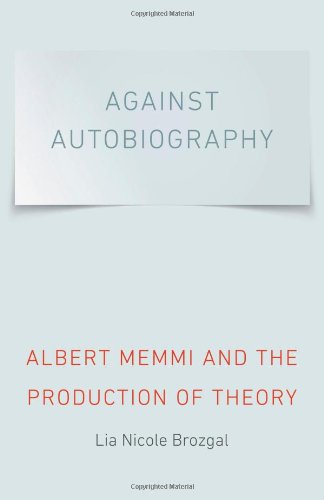

Most ebook files are in PDF format, so you can easily read them using various software such as Foxit Reader or directly on the Google Chrome browser.
Some ebook files are released by publishers in other formats such as .awz, .mobi, .epub, .fb2, etc. You may need to install specific software to read these formats on mobile/PC, such as Calibre.
Please read the tutorial at this link: https://ebookbell.com/faq
We offer FREE conversion to the popular formats you request; however, this may take some time. Therefore, right after payment, please email us, and we will try to provide the service as quickly as possible.
For some exceptional file formats or broken links (if any), please refrain from opening any disputes. Instead, email us first, and we will try to assist within a maximum of 6 hours.
EbookBell Team

0.0
0 reviewsThe work of Tunisian Jewish intellectual Albert Memmi, like that of many francophone Maghrebian writers, is often read as thinly veiled autobiography. Questioning the prevailing body of criticism, which continues this interpretation of most fiction produced by francophone North African writers, Lia Nicole Brozgal shows how such interpretations of Memmi’s texts obscure their not inconsiderable theoretical possibilities.
Calling attention to the ambiguous status of autobiographical discursive and textual elements in Memmi’s work, Brozgal shifts the focus from the author to theoretical questions. Against Autobiography places Memmi’s writing and thought in dialogue with several major critical shifts in the late twentieth-century literary and cultural landscape. These shifts include the crisis of the authorial subject; the interrogation of the form of the novel; the resistance to the hegemony of vision; and the critique of colonialism. Showing how Memmi’s novels and essays produce theories that resonate both within and beyond their original contexts, Brozgal argues for allowing works of francophone Maghrebi literature to be read as complex literary objects, that is, not simply as ethnographic curios but as generating elements of literary theory on their own terms.